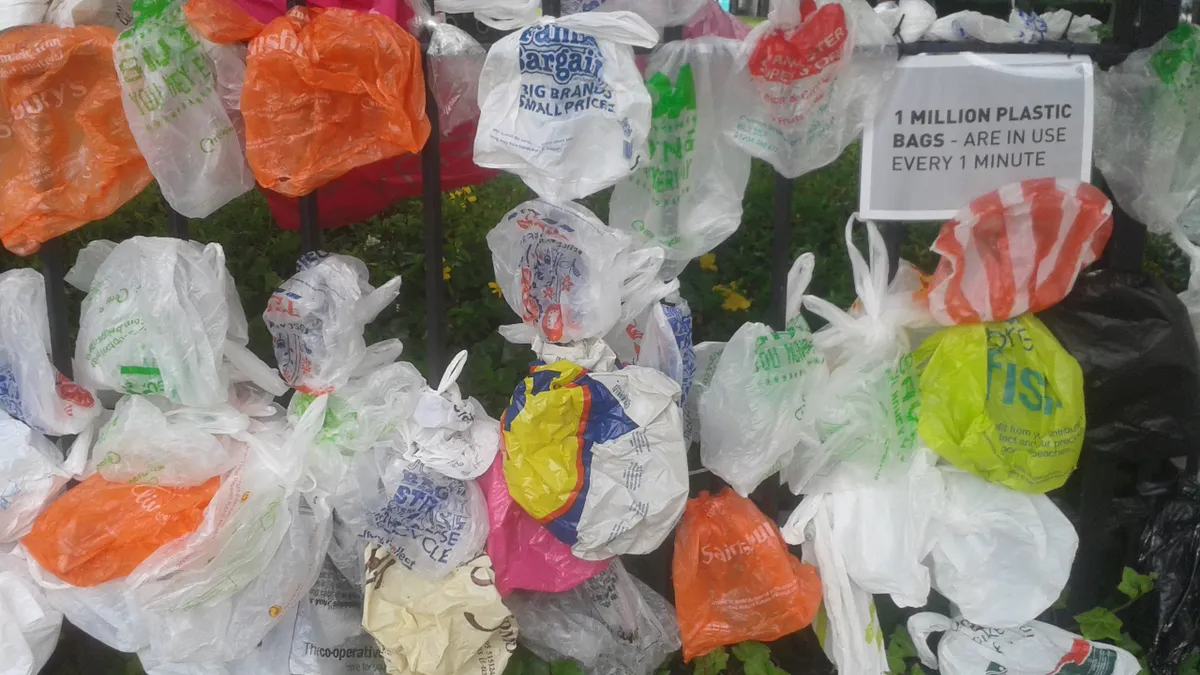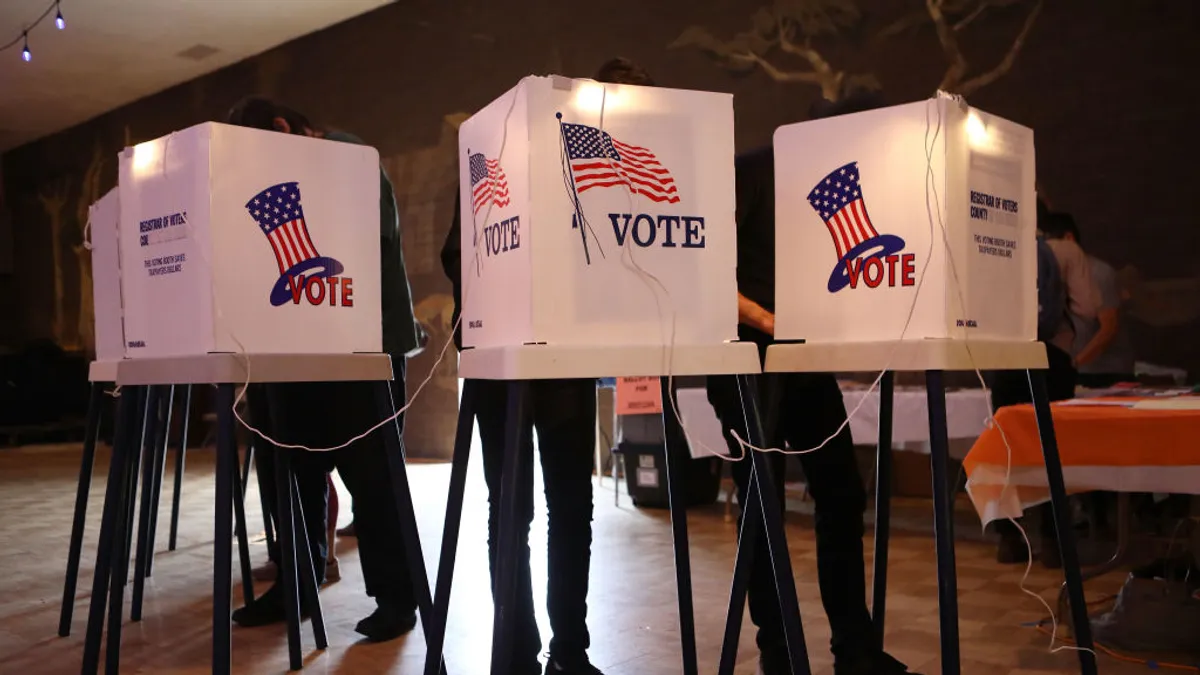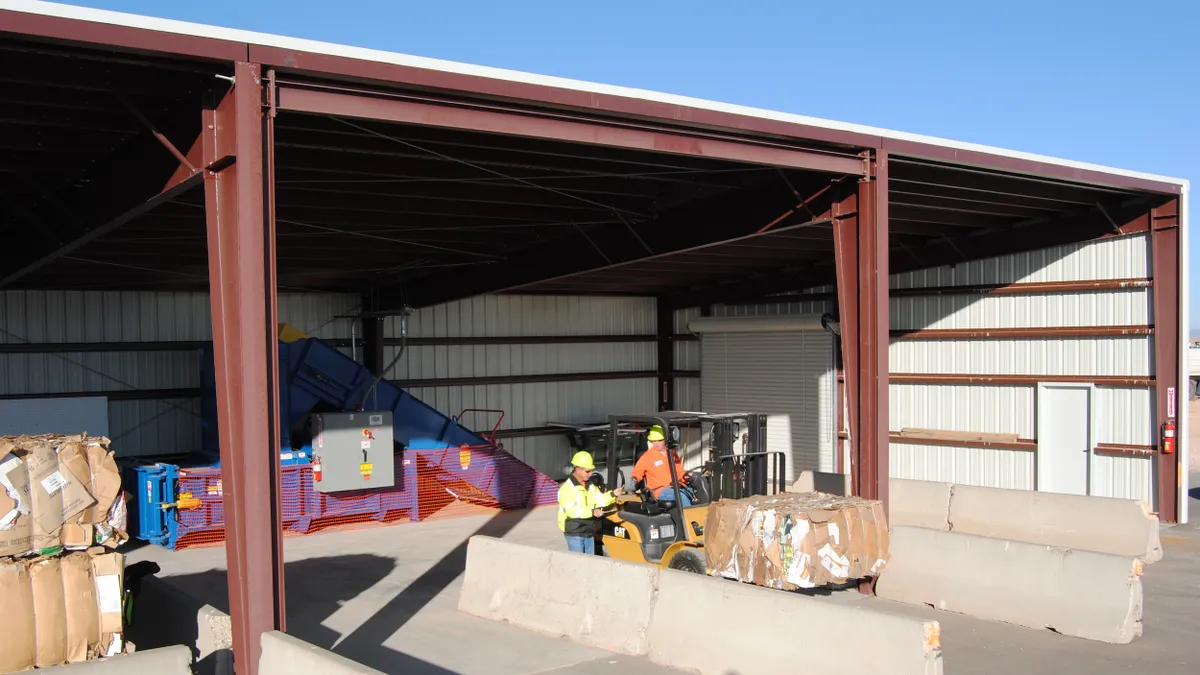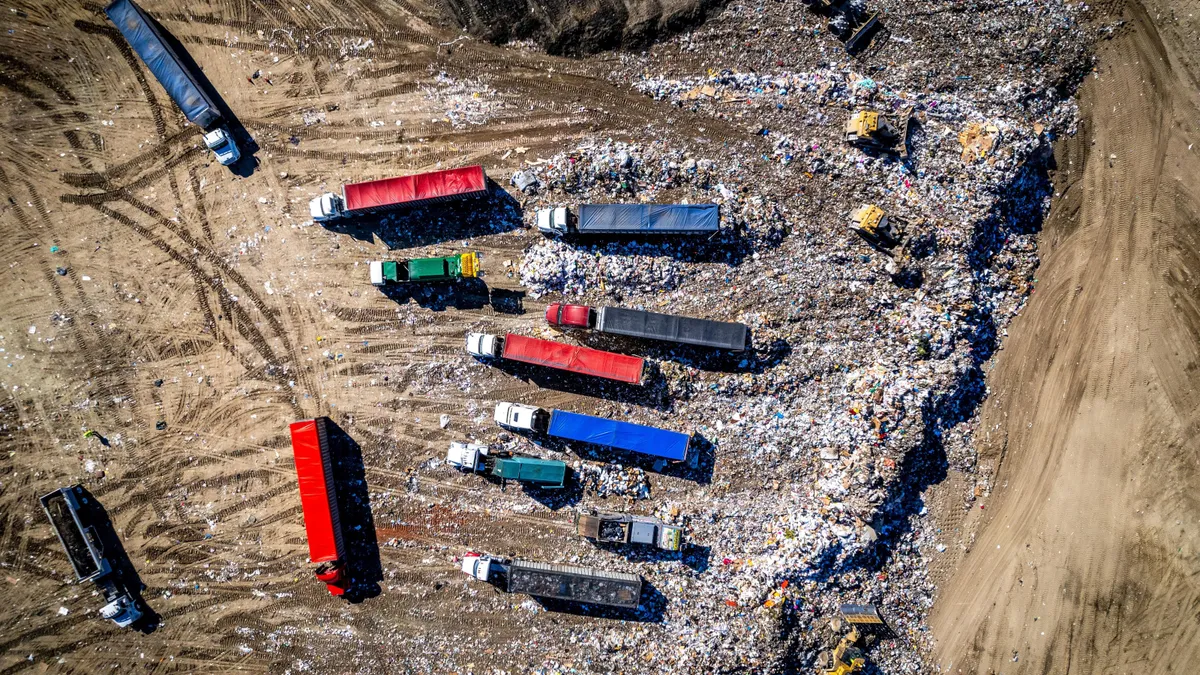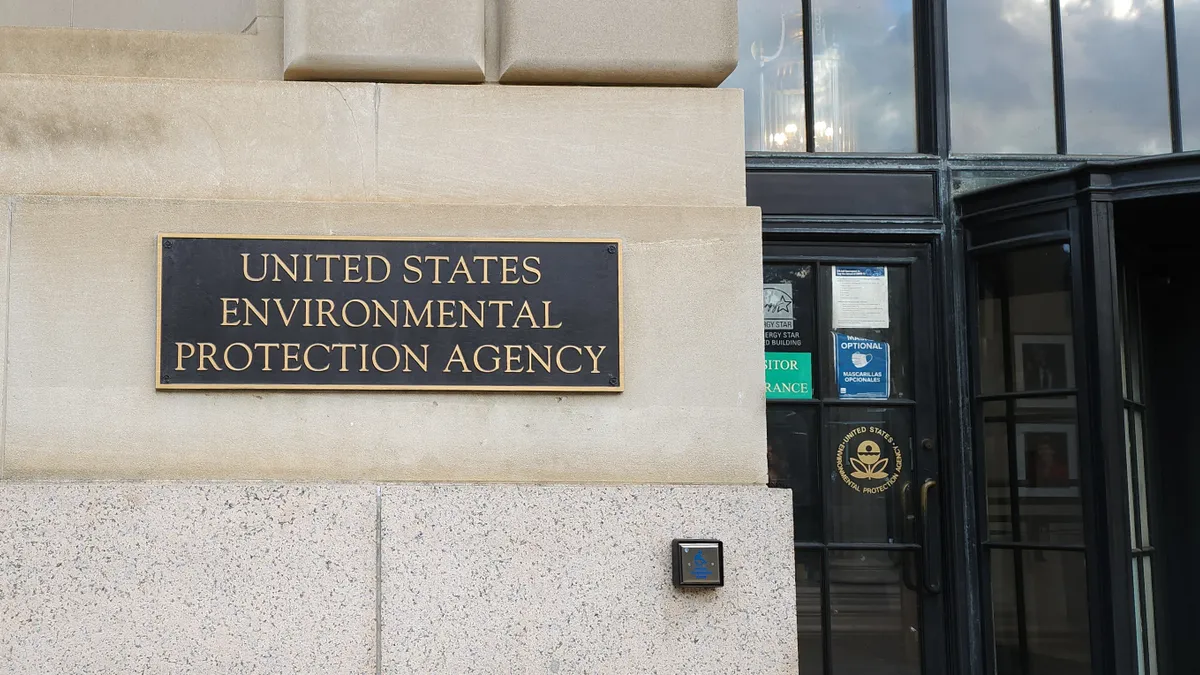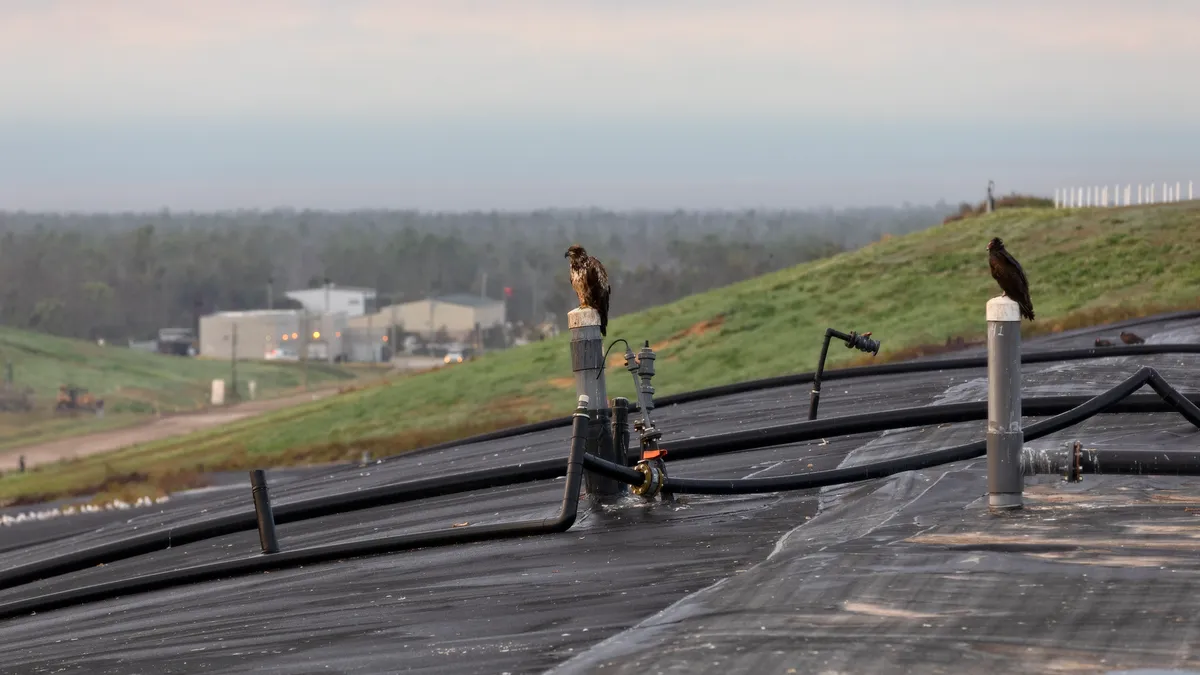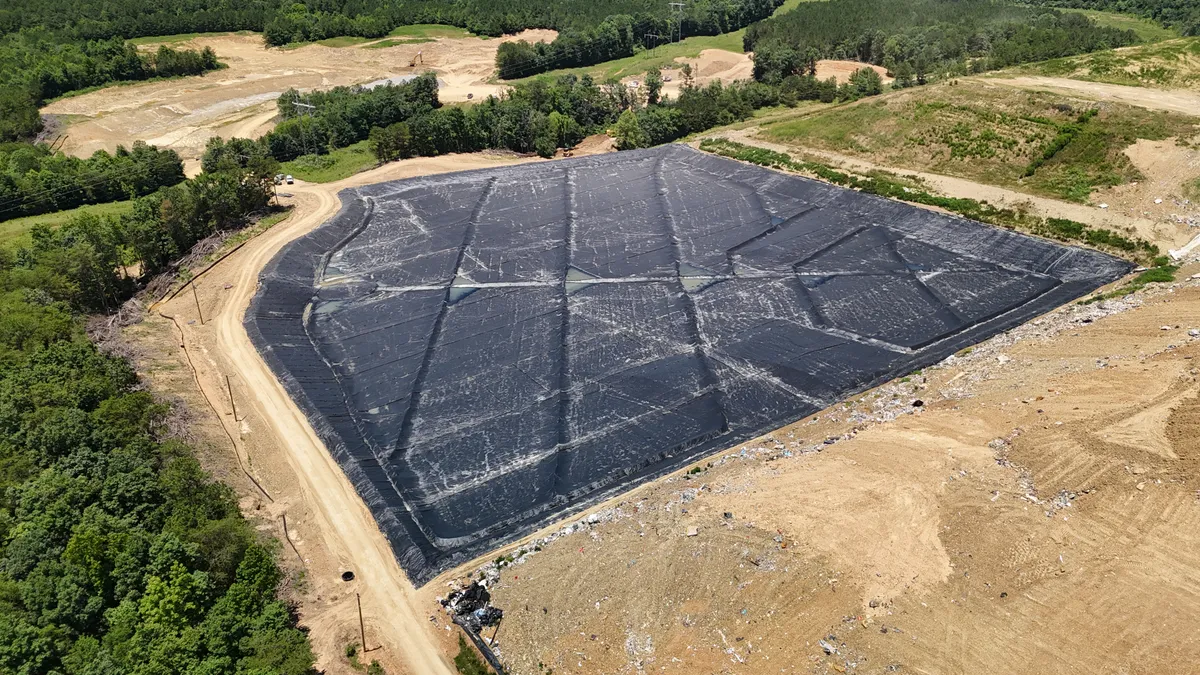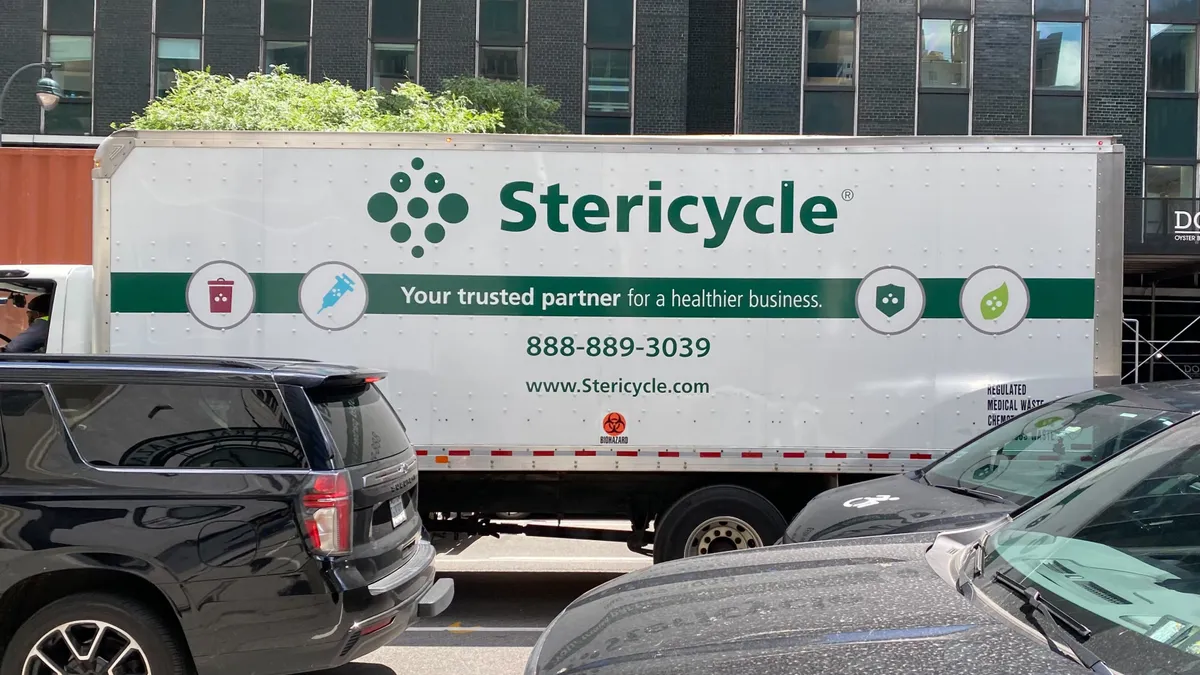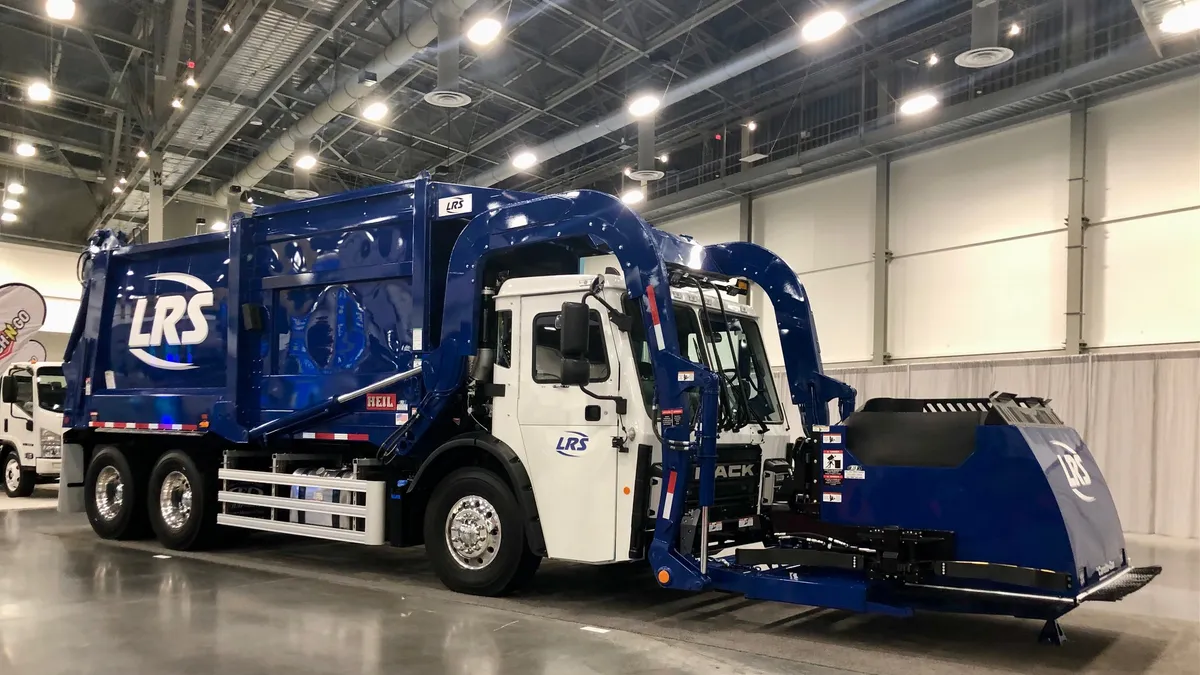At the checkout line in the grocery store, many Americans find it convenient — even habitual — to place their food and household items in plastic bags provided by the store before heading home. However, the request for a nickel or dime per bag may change this habit nationwide.
Every year, U.S. consumers dispose of 100 billion plastic bags, fewer than 5% of which are recycled. Those lightweight bags then end up in landfills, caught in trees, or polluting waterways.
At least 160 municipalities in the U.S. have enacted bans of plastic bags to try to keep the bags from harming the environment. The most effective ordinances also charge a fee for paper bags to encourage use of reusable bags.
Some communities, however, have "bagged the ban." Instead, they charge a fee on both plastic and paper bags to make consumers more aware of the amount of bags they are using. Those communities include Washington, D.C.; Portland, ME; and Boulder,CO.
A look at some cities with bag fees
Washington, D.C.
Fee: 5 cents, paper or plastic
Enacted: Jan. 1, 2010
Funds go to: Anacostia River Clean Up and Protection Fund
Montgomery County, MD
Fee: 5 cents, paper or plastic
Enacted: Jan. 1, 2012
Funds go to: Water Quality Protection Charge fund for water quality and stormwater control programs
Portland, ME
Fee: 5 cents, paper or plastic
Enacted: April 15, 2015
Funds go to: Stores keep the fee
Boulder, CO
Fee: 10 cents, paper or plastic
Enacted: July 1, 2013
Funds go to: Stores keep 4 cents; 6 cents goes to the city to address the impact of disposable bags
Breckenridge, CO
Fee: 10 cents, paper or plastic
Enacted: Oct. 15, 2013
Funds go to: Stores keep 50% of the fee collected up to a maximum of $1,000/month in the first year of the law, and up to $100/month in subsequent years. The rest is for the Reusable Bag Program fund to be used for public information and programs.
How well do the laws work?
A 5-cent fee went into effect in January 2015 in Dallas, but the city council repealed it five months later when plastic bag makers sued, arguing the ordinance violated the Texas state law prohibiting taxes on containers.
Elsewhere, bag fees have been seemingly successful. In Washington, the fees have contributed $10 million to the Anacostia River fund since collection began in 2010.
“I think it’s been one of the most successful legislative interventions into a known trash problem in decades,” Tommy Wells, a former D.C. Council member who crafted the law in 2009, told The Washington Post.
However, the newspaper’s review of a city audit questions the validity of the program, which came with the slogan, "Skip the Bag, Save the River."
The Post said that only one-third of spending and allocations had gone toward trash traps to clean the Anacostia, rain barrels and rain gardens to catch runoff, green roofs, tree plantings or stream restoration. More than $1.7 million went toward personnel costs, and $1.2 million will be paid over the next two years to send every city fifth-grader on a two-night field trip at campsites outside the city.
Julia Robey Christian, a spokeswoman for the Department of the Environment, said the one-third estimate is low because that figure should include the salaries of employees who are essential in implementing the law.
Revenue from Washington's bag fee has increased each year since the fee’s inception, from $1.5 million in 2010 to $2.1 million in 2014, despite residents reporting in surveys that they are using 60% fewer bags.
"The point with this wasn’t to make you stop using bags," Wells said. "The point was to get the uncaptured trash out of the environment ... the stuff that ends up in the ocean, the stuff that ends up in the rivers."
In Boulder, CO, the use of plastic and paper bags fell 68% six months after the city instituted its 10-cent fee, according to city officials. "It seems to be more motivating than we thought," said Jamie Harkins, business sustainability specialist for the city.
The fee in Portland, ME has recently motivated the nearby city of South Portland to also implement a 5-cent fee on one-time-use paper and plastic shopping bags. "You find plastic bags floating all around the city," said Mayor Linda Cohen. "And you can't just recycle those bags. It's time to do it."
Changing behaviors
A study of the 5-cent-per-bag fee in Buenos Aires, Argentina, published in the Journal of Environmental Psychology, showed that the fee increased the number of people carrying their own bags since its implementation in 2012.
But a second study showed why: While some consumers wanted to avoid the fee, others had green motivations.
"The people who supported the policy most, they also say they do it for environmental reasons," said psychologist Adriana Jakovcevic of Buenos Aires University.
In addition, the study suggests that the new policy worked by being disruptive of the status quo and changing people's default options and choices. "After the introduction of the plastic bag charge, customers had to explicitly approve or request to obtain a bag and pay for it," notes the study.
As the Washington Post's Wonkblog noted: "It's the way this small change disrupts habitual behaviors and helps people draw a tighter linkage between the environmental awareness that they already possess, and actions in the world that actually advance that consciousness and their values.”


